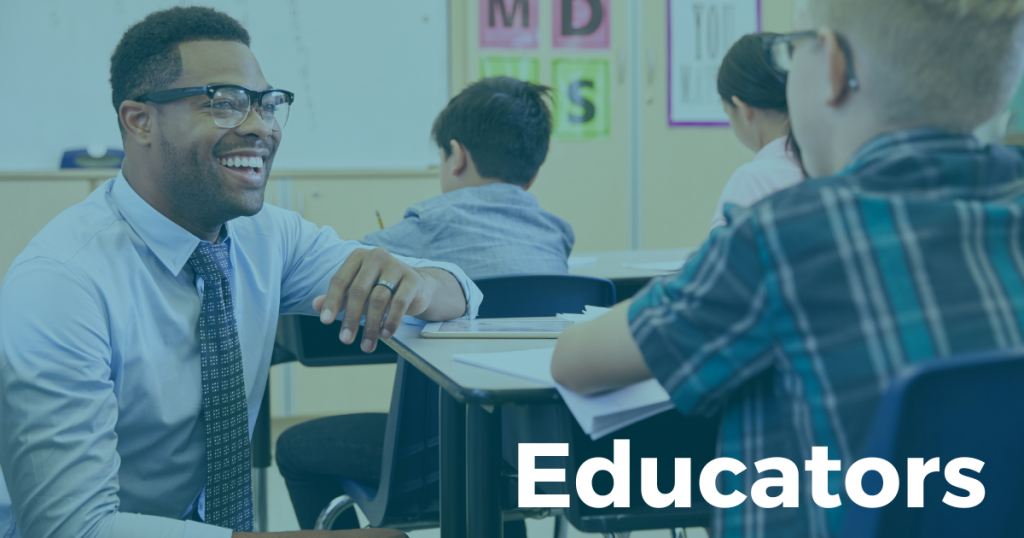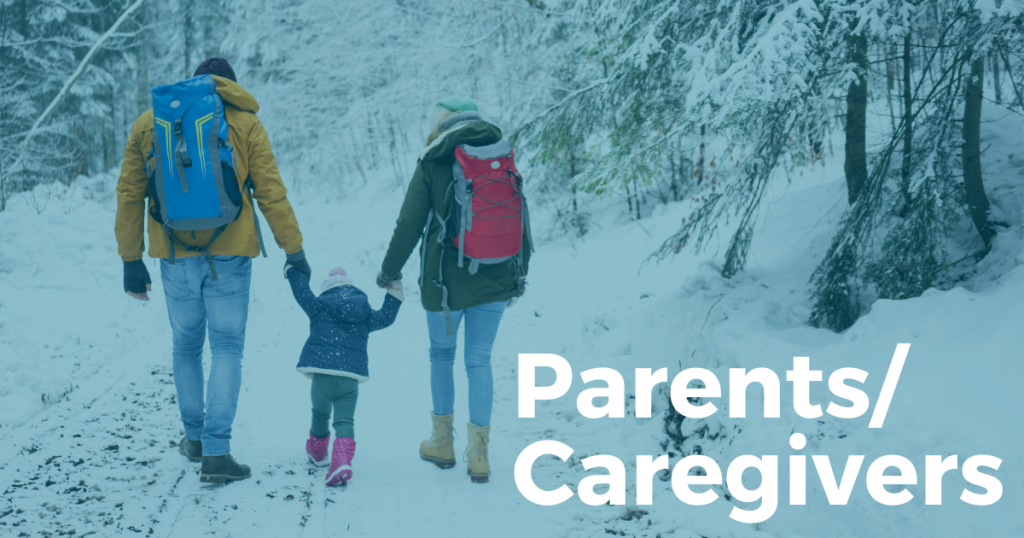An Educator and Parent Perspective

For Educators:
The holiday season is wonderful for many, but like all anticipated events, good things come to an end. Vacations are over, exciting activities are behind us, and it is time to move forward. For some of our children and for some of us, there may have been disappointments that the holidays weren’t what we expected.
As we work with children in our classrooms, we must proceed with caution in our activities because we can’t assume that the holidays were pleasant for everyone. Perhaps a child was looking forward to a specific gift, but he didn’t get it because the family was short on money. Perhaps the child was hoping to see a grandparent, but the loved one was sick and couldn’t come to a celebration. Maybe the family was planning a trip and had to cancel due to the weather.
We, as educators, are in a balancing act. We want to hear about all the fun children had but need to be sensitive that not all children had a good time. We want to give all the children the opportunity to be heard but don’t want to encourage bragging that can be insensitive to those who can’t think of anything to brag about. As much as possible, we must try to meet with children privately to find out what they liked about the holiday or what they wished was different so we can plan accordingly to meet their needs.
You might ask all of the students to describe someone they met over the vacation, a favorite food they had, what was their favorite conversation with someone, and what was a book or show they liked. Ask them to think about their wish to return to school.
Ask children who don’t like to share verbally to write in their journals or draw a picture to describe their time off.
If you sense that they are angry about something that happened, make sure you build in time for them to talk with the social worker or counselor.
Here are some other helpful hints:
- Start their first day back with something the children like to do. If they have varying things in which they have a strong interest, give them 2-3 choices of an activity that they do well and prefer.
- Remember that children had a different schedule when they were off, so it will be hard to get them back into the school routine. Don’t expect them to have the stamina they had before the break. They may have been staying up late and sleeping in the morning. To come back to school, they had to get up at the crack of dawn.
- Remember that children had different schedules or routines, so you will need to give frequent breaks, build in more movement activities, and periodically intersperse easy tasks. Plan short activities and try to limit assignments that may take a long time to do.
- Review expectations by posting them, creating a game about them, and frequently reinforcing students following the rules.
- Teach the students the social skills you expect. Don’t expect that children will remember how to behave in specific situations.
- Keep directions limited to one step, and make sure you use vocabulary in those directions that are clear to the students. Remember that their ability to process oral directions may be delayed, and you may have to give visual cues and reminders.
- Remember that cognitive flexibility—the ability to move from one activity to another—may have decreased over break, so recognize that transitions from one activity to another may be tough. Allow more time and give more prompts for moving from one activity to another.
Many children will be glad to be back in the structure, routine, and comfort you provide them. Let them know that you are glad they are back and that you are there to help them get back into the swing of school activities.

Parent/Caregiver Perspective
The winter holiday break for students is always a happy time because it means no school for two whole weeks! For a student with anxiety, it is especially a joyful time as they can stay home and not need to set the alarm and go to a place that gives them the most anxiety, school. For the parent or caregiver, it is also a well-deserved time off, as it can be stressful during the school year.
Any break, let alone a two-week break, can be challenging for someone with anxiety. They can find themselves in an up-and-down mood when thinking about being away from their biggest anxiety-inducing surroundings. Instead of enjoying the much needed time off, they are anticipating the break coming to an end. The negative thoughts start to creep in, and before you know it, it’s time to go back to school. They might find themselves missing out on any fun activities planned and not entirely giving themselves time to relax during the time off.
A parent or caregiver with a child with anxiety knows all too well the mental barrage of negative thoughts their child is having. They know it takes baby steps to prepare for the upcoming return of jumping back into the routine.
The following are suggestions to help prepare for the return to school after the long break.
- To help with the transition, it is essential to talk with any school personnel involved with your child. It can be their Case Manager, the Special Education Coordinator, School Psychologist, or their Counselor. Let them know the difficulties the student has after a long break. This is also important to discuss with your child’s teachers at the beginning of the year. It will take time to ease them into the schedule they left behind a couple of weeks earlier.
- A student with a mental health issue should have that noted in their IEP. Steps should be listed on how best to support the child while at school.
- Be patient while they navigate the overwhelming pressure to settle back into their routine.
- Talk with your child and make a plan for the return of going back to school. What does your first day back look like? Will you walk them into school? Will you have someone come to your car and meet your child?
- Make sure they are going to bed at their regular time to avoid having them thrown off of their schedule.
- If you can, have lunch with them when they return to school; seeing you will help calm them and let them know you will be there when they get home.
- Children with anxiety need something to look forward to. It could be as small as going to the park or taking them to their favorite store to walk around.
Authors:
Bev Johns, Behavior Consultant and President of LDA Illinois
Rachel Krueger, Director of Affiliate Relations
LDA of America Mental Health Committee Members


